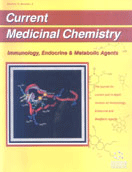Abstract
The genetics of Alzheimers disease (AD) is complex. Three genes-amyloid precursor protein, presenilin 1 (PS1), and presenilin 2 (PS2)- have been described in the relatively rare, early-onset, autosomal dominant familial form of AD. In the common, nonfamilial (sporadic) late-onset AD, the major known genetic risk factor is the e4 allele of the Apolipoprotein E (APOE) gene, but at least half of the people who develop AD do not carry this allele. Therefore, other genes are risk factors for sporadic AD or modify the association with APOE ε4 allele. Nine candidate genes that have been implicated in the pathophysiology of AD, although none is as widely accepted as APOE, are the human leucocyte antigen (HLA)-A2, PS1 and PS2, butyrylcholinesterase (BCHE), endothelial nitric oxide synthase (NOS3), cathepsine D (catD), prion protein (PRNP), low density lipoprotein-related protein (LRP), and interleukin-1A (IL-1A). Positive-association studies with these candidate genes have not been consistently confirmed. This fact has prompted a search of these 9 candidate genes and APOE gene in a large case-control study utilizing a clinically well-defined group of 311 sporadic AD patients and 346 control subjects. Risk for AD was increased with one copy (odds ratio -OR- 5.3) or two copies of APOE ε4 allele (OR 49.8), and with two copies of IL-1A allele 2 (OR 3.1), homozygosity for either the 1 allele of PS1 or the C allele of PS2 increased the risk conferred by APOE ε4 allele, homozygous for the T allele of -491 APOE promoter and carriers of the K allele of BCHE were at reduced risk of AD (OR 0.1 and 0.4, respectively), HLA-A2 anticipated in 2.7 years the age at onset of AD, LRP, catD, NOS3, and PRNP were not associated with AD.
Keywords: Sporadic, Alzheimers Disease, APOLIPOPROTEIN E, BUTYRYLCHOLINESTERASE, CATHEPSIN, Interleukin, Polymerase chain reaction, Presenilin
 2
2








